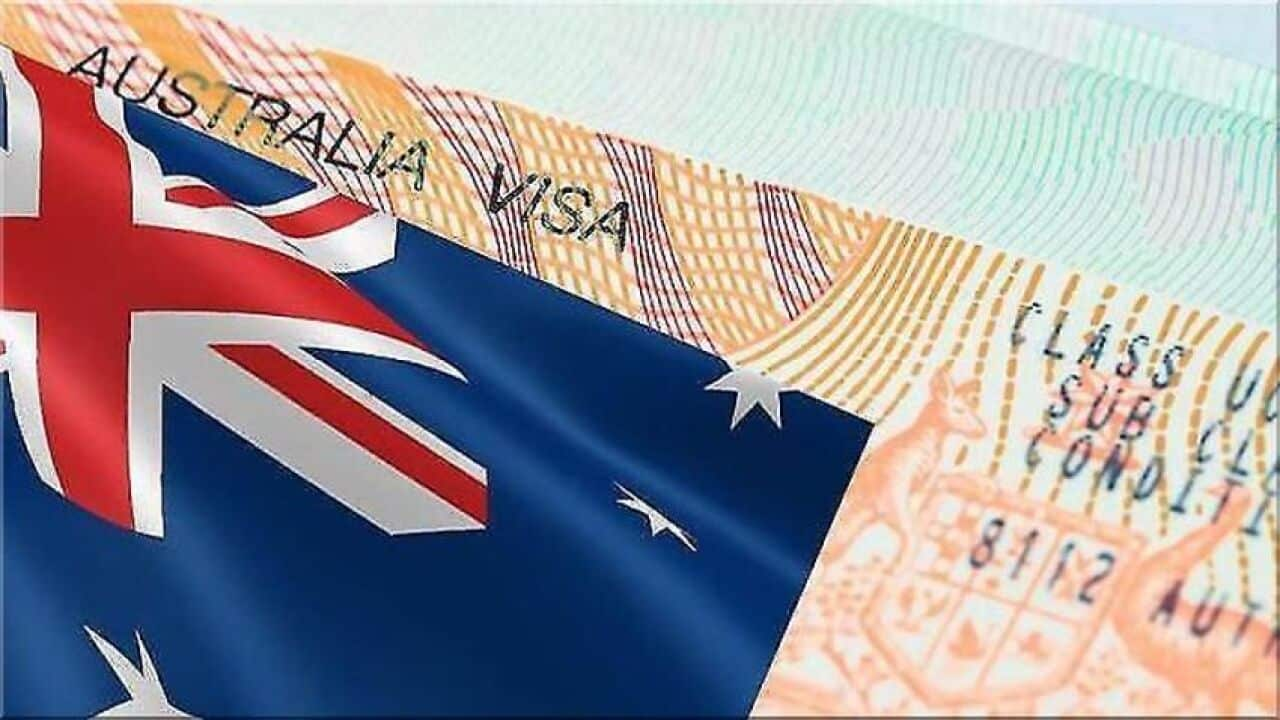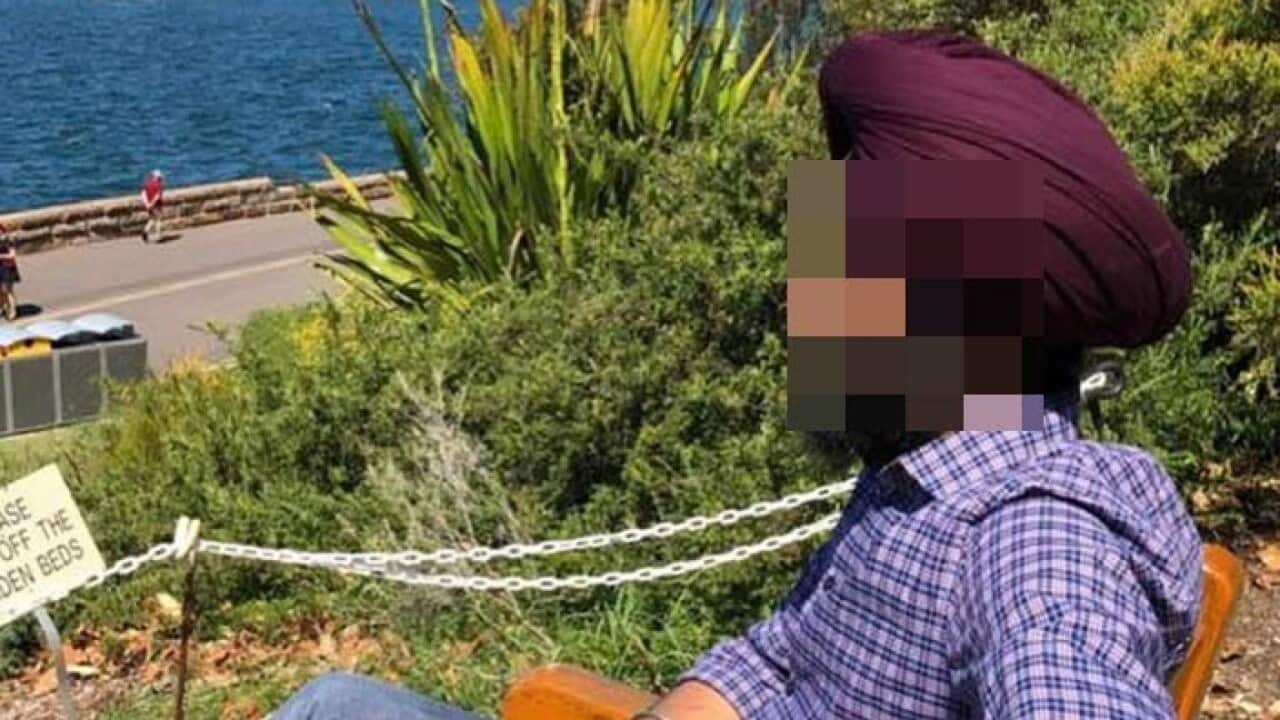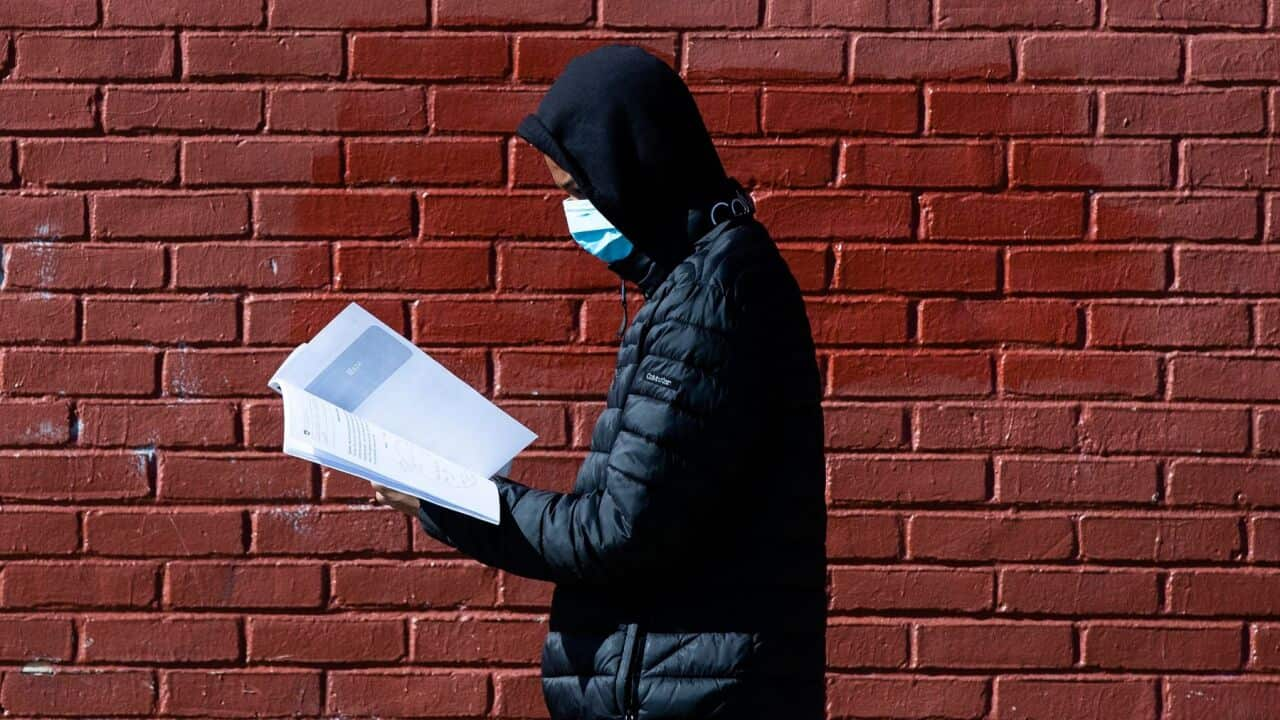Highlights
- Government removes newly arrived residents waiting period for some visa holders
- Temporary visa holders may also be eligible for some payments or concessions
- Help is also available for subclass 491 and 494 visa holders
As Australian workers lose their jobs and working hours, it’s more important than ever to know what financial options you have to tide through the unprecedented crisis.
Here’s a visa-wise classification of the current financial assistance available to help Australian visa holders.
Partner visa holders:
Visa holders of subclass 820 (Partner-temporary) or subclass 309 (Partner-provisional) may be eligible to apply for Centrelink. The government has now removed the newly arrived residents waiting period for JobSeeker Payment, Youth Allowance, Austudy, Farm Household Allowance and Special Benefit from March 25. In a statement to SBS Punjabi, a spokesperson from the Department of Social Services said: "This would allow who are permanent residents will temporarily be able to access income support payments sooner in the wake of the coronavirus economic downturn."
In a statement to SBS Punjabi, a spokesperson from the Department of Social Services said: "This would allow who are permanent residents will temporarily be able to access income support payments sooner in the wake of the coronavirus economic downturn."

Financial assistance is also available for partner visa holders Source: Getty Images
"Welfare assistance may be available to some other temporary visa holders if they face significant financial hardship under the Special Benefit payment," said the spokesperson.
Student visa holders:
Holders of subclass 500, subclass 590 or subclass 407 are currently not eligible for any financial assistance.
However, student visa holders who have been in the country for longer than a year and are facing financial difficulties are now allowed to access their superannuation funds.
International students working in major supermarkets and those in aged care and as nurses have had their hours extended, which means they can now work for more than the maximum 40 hours a fortnight stipulated in their visa conditions.
But for those working in the supermarkets, their hours will return to the usual 40 hours a fortnight from May 1, as more Australians are being recruited into these roles.
Skilled and business visa holders:
A majority of temporary visa holders are not eligible for any of the government's coronavirus payments. They can, however, access up to $10,000 in superannuation to support themselves during the crisis.
Help is also available for subclass 491 (Skilled Work Regional (Provisional) and subclass 494 (Skilled Employer-Sponsored Regional Visa) as they may be able to meet the definition of Australian resident for social security purpose.
Business visa holders subclass 188 (Provisional) are not eligible for the government's support packages. Working holiday visa holders:
Working holiday visa holders:

Working Holiday makers (Representational image) Source: AAP
Visa holders under this category are not eligible for financial assistance currently being offered by the government.
However, those working holidaymakers who are working to support the critical sectors of health, aged and disability care, agriculture and food processing, and childcare will be exempt from the six-month work limitation with the one employer.
They will also be eligible for a further visa to keep working in these sectors if their current visa is due to expire in the next six months.
Refugee and Humanitarian visa holders:
You may be able to get some payments, depending on your visa and circumstances. If your situation is difficult or extreme, you may also be able to get . This is a one-off payment. You’re only able to get this if you’re already getting an income support payment.
Visitor visa holders:
Visitors- subclass 600, subclass 601, subclass 651 are not eligible for any sort of financial support. Those facing hardships are encouraged to contact their embassy or consulate for assistance.
Coronavirus symptoms can range from mild illness to pneumonia, according to the Federal Government's website. Symptoms can include a fever, coughing, sore throat, fatigue and shortness of breath.
If you develop symptoms within 14 days of returning from overseas, you should call to seek medical attention.
If you don’t have symptoms but you have been in contact with a confirmed COVID-19 case, you should also call to seek medical attention.
If you believe you may need to get tested, call your doctor, don’t visit. Or contact the national Coronavirus Health Information Hotline on 1800 020 080.
If you are struggling to breathe or experiencing a medical emergency, call 000.



